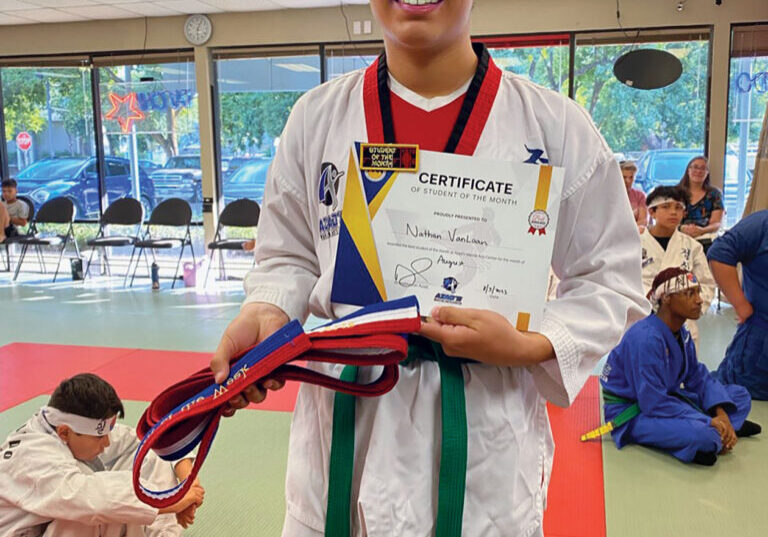Any parent of a teen can tell you that communication is tricky. Any teen can tell you communication with their parent(s) is difficult because there is a fear of getting in trouble or of being judged. What makes it so hard?
Teens are in a phase of development in which they are differentiating from their families, developing their own ideas, becoming more independent, pushing away from parents and focusing on friends and peers. Parents may wake up one morning and feel they don’t even know their kids anymore. In reality, their kids are just growing up. So, how do you talk to a kid that you don’t seem to recognize anymore?
It might help to remember that you were once in their shoes. Maybe it was a pair of Dr. Martens, Vans or Converse and you wore a band T-shirt with a flannel shirt and oversized jeans while you listened to grunge and alternative. Maybe you wore jellies or slip-on flats, fingerless lace gloves, teased your hair, used Aqua Net, wore layered skirts with off the shoulder tops, and listened to Madonna or Tiffany. No matter what you listened to, no matter what you wore, at some point you probably felt that your parental figures and adults in your life didn’t get you, didn’t understand, maybe didn’t even care. Keep that in mind when you are talking with any teenager that they are from a different generation and feel misunderstood by the generations that preceded them.
In the spirit of generations communicating, I worked with my own teenagers to compile the following tips on helping adults communicate with teens more successfully. This doesn’t mean things are magically going to be perfect and communicating with teens is going to be smooth sailing – it’s not. It’s going to improve as you work together.

Patience
Parents and teens alike can get easily frustrated with one another. Once everyone is frustrated, communication stops. As adults we are responsible for our emotions and managing ourselves. If we feel our buttons being pushed and patience wearing thin, it’s time for a break. If the teen needs a break to reset, they should be encouraged to take one too. We can revisit the conversation when we have calmed down and can think clearly again. Being patient with one another is going to result in more productive communication.
Don’t take it personally
A teen comes home from school, drops their backpack on the floor, slams doors, kicks things, makes guttural sounds. When you ask how they are, they scream. Sometimes they say they hate you. How do you not take it personally? Try to remember that they are a kid with an underdeveloped frontal lobe (which won’t fully develop for some of them until they are 25). You don’t know what happened over the course of their day. Whatever is going on likely has little to nothing to do with you. Give yourself and them time to cool down and leave the proverbial door open so they can talk to you without you being hurt and angry when they are ready to tell you about whatever is bothering them.
Active listening
Listen. Stop talking. Don’t think about your next response. Just listen. Now summarize what you heard. Take turns. That’s it. That’s the formula. It’s difficult because so often we start to prepare our response while the person is still talking to us. Sometimes they just need us to listen. Listen without judgment and without interruption.
Be available and be present
Showing up is part of the battle. Teens need to know adults are there for them. Put down the smartphone, stop working, turn off the TV and give them your undivided attention. Sometimes you might have to schedule that time due to everyone’s obligations but make a commitment to be present.
Positive words and trust
Be encouraging, work together, trust each other. Some of our words towards teens need to be positive – teens are in a sea of negative. They’ll let us help, but upon request. They need to feel trusted. When they don’t feel believed (and they are telling the truth) they feel defeated. When trust is established, we can then clearly communicate reasonable expectations.
There is no such thing as a perfect parent and no such thing as a perfect teen. We can model how to communicate and stay calm and respectful. Apologize when we mess up and forgive them when they do. Remind them they are loved. Do this and communication will be so much sweeter.
Posted in: Youth & Teen
Comment Policy: All viewpoints are welcome, but comments should remain relevant. Personal attacks, profanity, and aggressive behavior are not allowed. No spam, advertising, or promoting of products/services. Please, only use your real name and limit the amount of links submitted in your comment.
You Might Also Like...

Choosing the Best Pet for Your Family
They’re cute and they’re cuddly, but how do you know what kind of pet would work best for your family? When deciding on the right pet for you, consider your […]

Lessons from the First Job: Parents Learn As Much As Teens Do
I was sitting in my car in the parking lot of a banquet hall. I wasn’t there to attend a wedding or silver anniversary dinner. No, I was there waiting […]

Choosing Martial Arts for Kids
Martial arts training can promote all-around wellness in children. On a physical level, these disciplines build strength, balance, flexibility and stamina—because they utilize the full body. But martial arts training […]

Nurturing Young Entrepreneurs – June 5 Lemonade Day and Pennies on Purpose
I was just four years old when the health department (also known as Mom) shut down my first business, a door to door enterprise selling baggies of strawberries picked out […]



